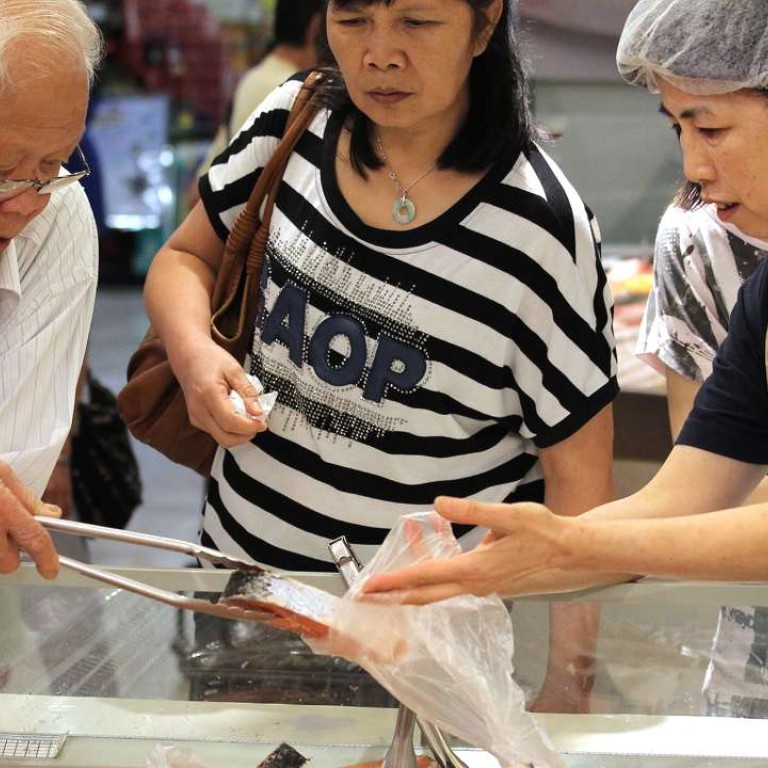
Supermarket chains sell threatened marine species, WWF Hong Kong claims
Green group urges chains to stop selling Japanese eels, golden threadfin bream and bluefin tuna
All major supermarket chains in the city have sold threatened marine species, according to a study by WWF Hong Kong.
Nine groups, including Dairy Farm that runs Wellcome and more upmarket Jasons and tycoon Li Ka-shing’s ParknShop chain were found to be selling Japanese eels, according to the study of 144 outlets.
As common as they are, Japanese eels – best known for their coveted place in Japanese bentos – have been labelled “endangered” by the International Union for Conservation of Nature, with the wild population projected to halve in 30 years.
The city has the second biggest seafood consumption per capita in Asia, following Maldives, while Japan, which is famous for sushi and sashimi, comes in at seventh.
The green group also visited CR Vanguard, Kai Bo, 759 Store, Food Mart, City’super and Japanese-themed supermarkets Aeon and Yata.
All sold Japanese eels, the study concluded, with 89 per cent of them also offering golden threadfin bream, a popular fish that is listed as “vulnerable”. Three of the nine chains sold bluefin tuna, an endangered species.
According to WWF, Dairy Farm and Aeon sold up to four types of threatened fish, while City’super and Yata put three on their shelves.
The group has also been examining the environmental impact of seafood sales.
CR Vanguard and Kai Bo had the highest risk levels, followed by ParknShop and Dairy Farm, according to WWF.
Out of the 27 outlets the group checked over imports of shrimp and basa from China and Vietnam, three Chinese basa samples from ParknShop contained nitrofuran, a potential carcinogen banned in Europe and the US.
WWF’s senior programme officer on sustainable seafood, Jovy Chan Yuet-shan, said they had reached out to the chains and urged them to phase out the sale of unsustainable seafood.
She also urged the public to pay more attention to seafood products’ suppliers as a way to exert pressure on supermarkets.
A spokesman for A.S. Watson, which owns ParknShop, said its basa fish had been certified by the local authorities and they had confirmed to WWF that it was not selling any species listed in the Convention on International Trade in Endangered Species of Wild Fauna and Flora (CITES).
WWF said among the nine chains, Aeon, City’super and CEC International, which runs 759 Store, had responded more positively and were analysing its research.

